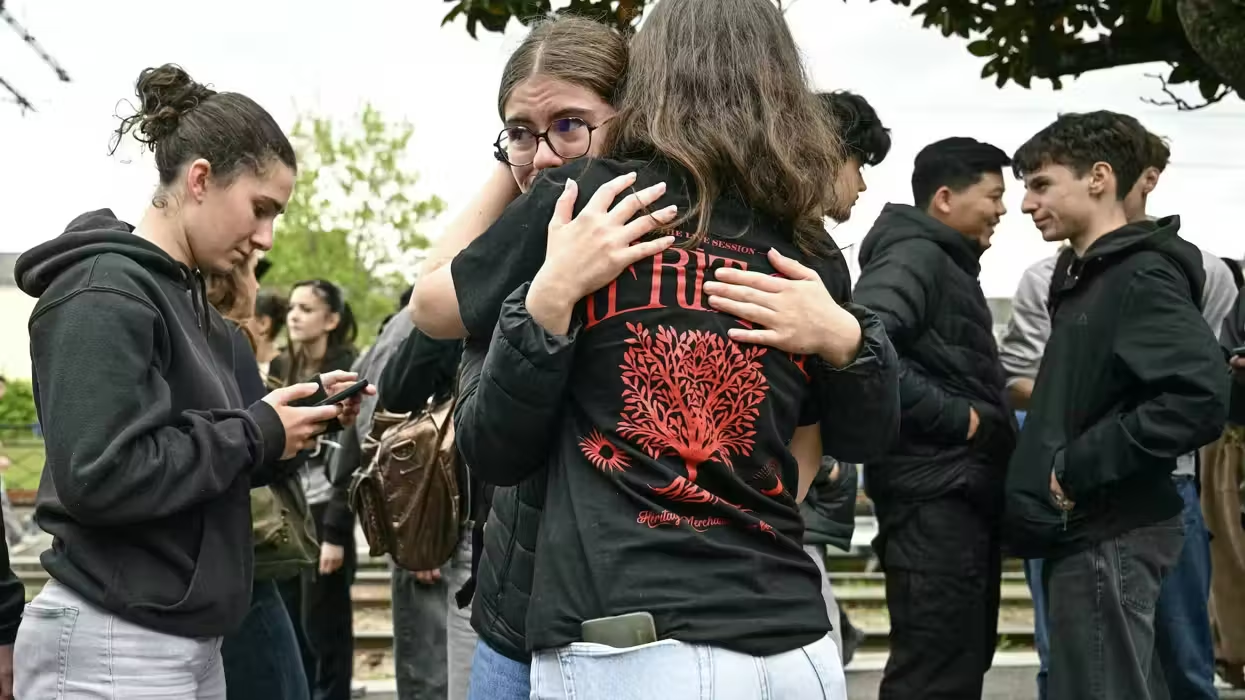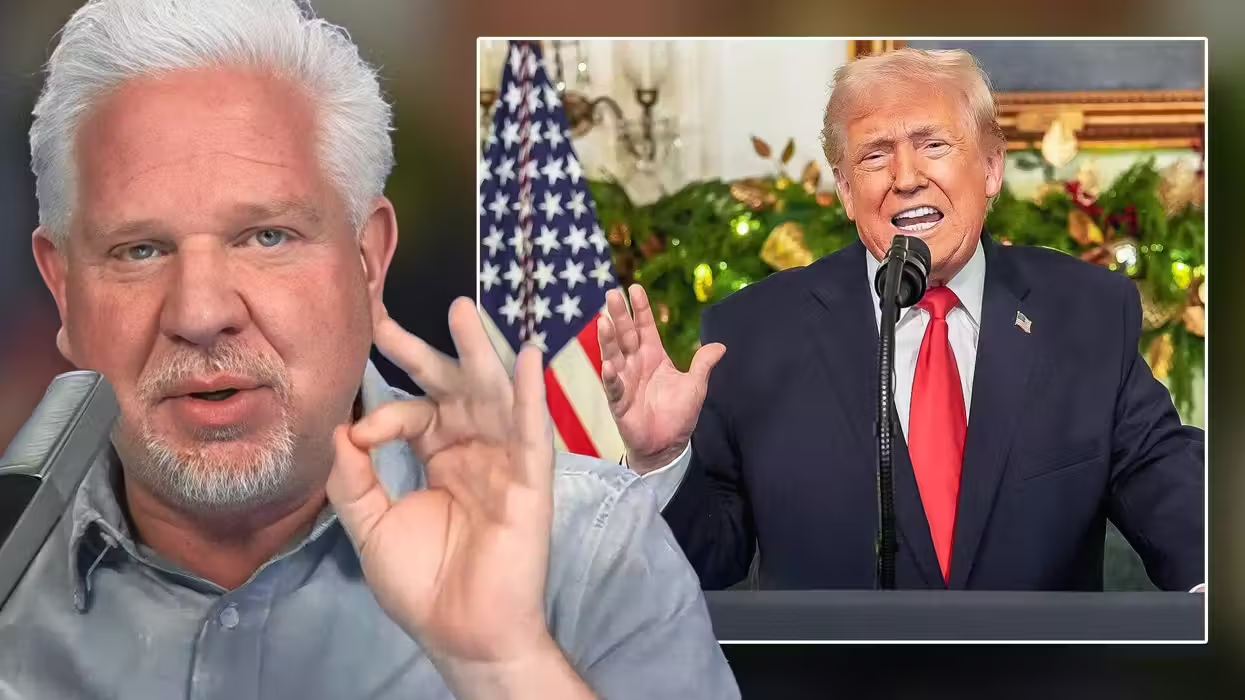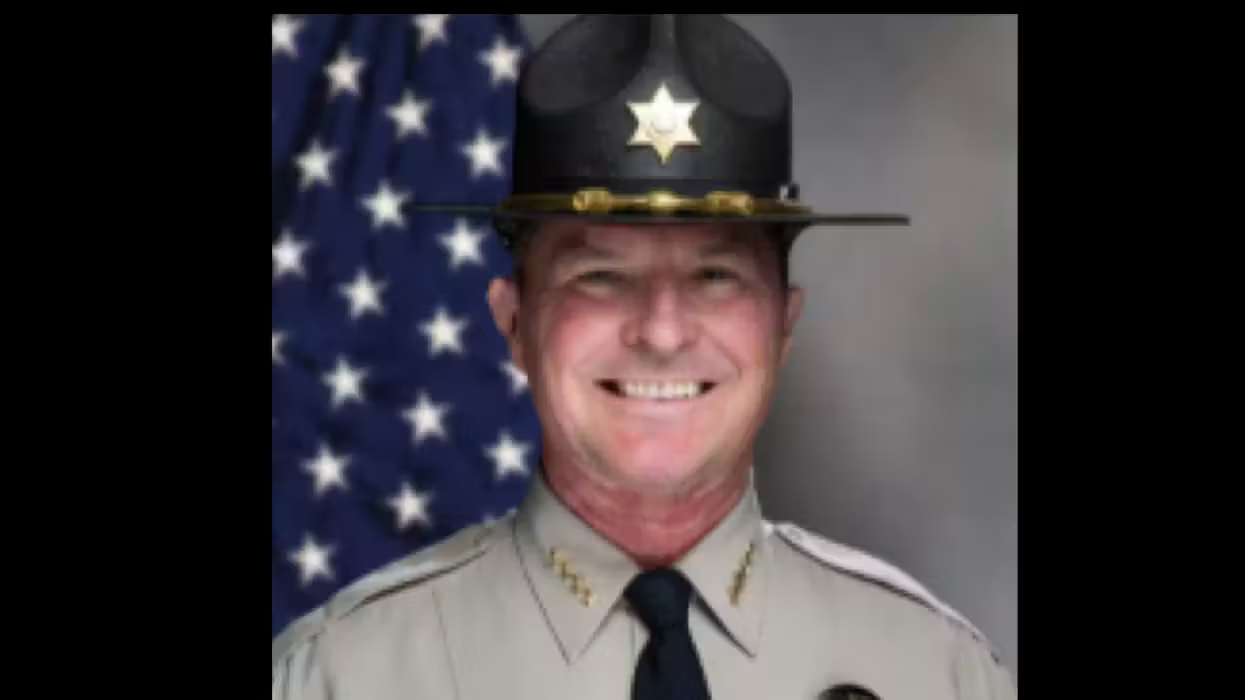
© 2025 Blaze Media LLC. All rights reserved.
Fauxcahontas' Plot Thickens: Fordham Law Review Called Elizabeth Warren Harvard Law's 'First Woman of Color
May 16, 2012
And have you seen her family's cookbook, "Pow Wow Chow"?
 Massachusetts senatorial candidate Elizabeth Warren’s “fauxcahontas” problem (the controversy over her claim that she's 1/32 Cherokee Indian) isn’t going away anytime soon. Her campaign has been in desperate damage control mode for two weeks and it doesn’t look like things are going to get any easier.
Massachusetts senatorial candidate Elizabeth Warren’s “fauxcahontas” problem (the controversy over her claim that she's 1/32 Cherokee Indian) isn’t going away anytime soon. Her campaign has been in desperate damage control mode for two weeks and it doesn’t look like things are going to get any easier.
Here’s the latest issue her campaign is going to have to deal with: A 1997 Fordham Law Review piece that refers to Warren as Harvard Law School's "first woman of color."
“The mention was in the middle of a lengthy and heavily-annotated Fordham piece on diversity and affirmative action and women,” Maggie Haberman of POLITICO reports. “The title of the piece, by Laura Padilla, was ‘Intersectionality and positionality: Situating women of color in the affirmative action dialogue.’”
The passage reads [emphasis added]:
There are few women of color who hold important positions in the academy, Fortune 500 companies, or other prominent fields or industries.This is not inconsequential. Diversifying these arenas, in part by adding qualified women of color to their ranks, remains important for many reasons. For one, there are scant women of color as role models. In my three years at Stanford Law School, there were no professors who were women of color. Harvard Law School hired its first woman of color, Elizabeth Warren, in 1995.
Why would this be a pain for the Warren camp?
“[T]he Fordham piece takes the description of Warren by Harvard Law beyond the boundaries of the Massachusetts school,” Haberman explains.
“Warren had described herself as a minority on a law professors' listing for several years, ending in 1995.”
The Fordham Law Review is from 1997.
“Brown's camp has been calling on Harvard to release records related to Warren's hiring, and for her to do the same,” POLITICO reports.
 “[Warren] described herself as ‘white’ when she applied for the University of Texas decades ago, and didn't apply for a minority program at Rutgers Law School - but those documents becoming public help to underscore the questions that Republicans are posing about the remaining ones,” the report adds.
“[Warren] described herself as ‘white’ when she applied for the University of Texas decades ago, and didn't apply for a minority program at Rutgers Law School - but those documents becoming public help to underscore the questions that Republicans are posing about the remaining ones,” the report adds.
Warren’s main line of defensive has been to accuse Sen. Brown’s campaign of distracting from the real issues.
Still, someone in her camp must think this is an important issue because, as mentioned in the above, her campaign has been doing an awful lot of damage control the past two weeks.
The biggest problem, however, is that much of the damage control has done more harm than good. In fact, there have been enough "awful" attempts at controlling the Native American narrative that Rosie Gray at Buzzfeed has put together a “top whatever" list (and we all love “top whatever” lists).
So here from Buzzfeed are the 7 “fauxcahontas” damage control efforts that probably did more harm than good:
7. In defense of her native American heritage, Warren actually cited a family cookbook called “Pow Wow Chow.” The book was edited by the senatorial candidate’s cousins. We’re not making this up.
 Image courtesy Buzzfeed
Image courtesy Buzzfeed
6. “I think what this is about is Scott Brown trying to change the subject. He just wants to find a way to talk about something else, and I think it’s wrong. I think this is why people are turned off on Washington politics.”
This was Warren's best response to recent reports that her ancestors may have been involved in rounding up Native Americans for the “Trail of Tears.”
5. One of her strongest claims to Native American heritage: "My papaw had high cheekbones like all of the Indians do."
4. The Scott Brown campaign told Warren that she needed to “come clean” over her heritage claims.
This was the response from Warren's campaign spokeswoman Alethea Harney:
The simple fact is that Elizabeth is proud of her heritage. Charles Fried, the former solicitor general in the Reagan administration, played a key role in her recruitment to Harvard and confirmed that her heritage was not a factor in her hiring. The fact that she listed her heritage in some professional directories more than 15 years ago does not change those facts.
3. When pushed to prove (or at the very least explain) her heritage, Warren had this to say: “Native American has been a part of my story, I guess since the day I was born, I don’t know any other way to describe it.”
2. When asked why Harvard had listed her as a Native American, Warren replied: “I don’t know more than that."
1. But here is the greatest (worst?) excuse Warren has offered for why she listed herself as a minority:
I listed myself in the directory in the hopes that it might mean that I would be invited to a luncheon, a group something that might happen with people who are like I am. Nothing like that ever happened, that was clearly not the use for it and so I stopped checking it off.
According to Shelly Lowe, executive director of Harvard University's Native American Program (HUNAP), Warren had not, to her knowledge, participated in any Native American events while she was a professor at Harvard Law.
This story has been updated.
Want to leave a tip?
We answer to you. Help keep our content free of advertisers and big tech censorship by leaving a tip today.
Want to join the conversation?
Already a subscriber?
more stories
Sign up for the Blaze newsletter
By signing up, you agree to our Privacy Policy and Terms of Use, and agree to receive content that may sometimes include advertisements. You may opt out at any time.
Related Content
© 2025 Blaze Media LLC. All rights reserved.
Get the stories that matter most delivered directly to your inbox.
By signing up, you agree to our Privacy Policy and Terms of Use, and agree to receive content that may sometimes include advertisements. You may opt out at any time.






